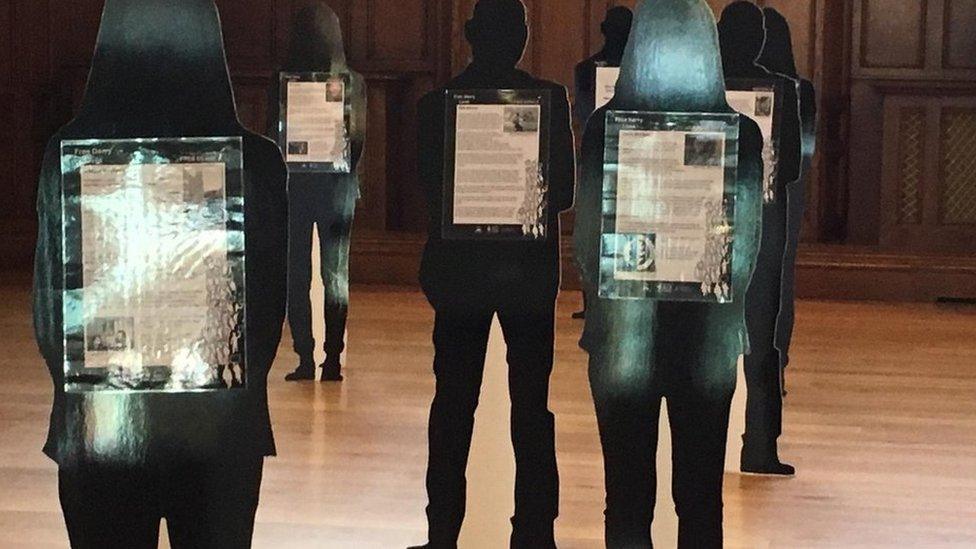The Provisional IRA: How 1969 sparked deadly campaign
- Published
How 1969 sparked the Provisional IRA's deadly campaign
Fifty years ago, the sparks of sectarian conflict in Northern Ireland ignited the Troubles and the Provisional Irish Republican Army (PIRA) was born.
The organisation killed more than 1,700 people during a 25-year campaign which followed, before calling a ceasefire.
"All sides inflicted pain and suffering," said veteran republican and former PIRA prisoner Sean Murray.
"I never ever want to see that inflicted upon any other generation."
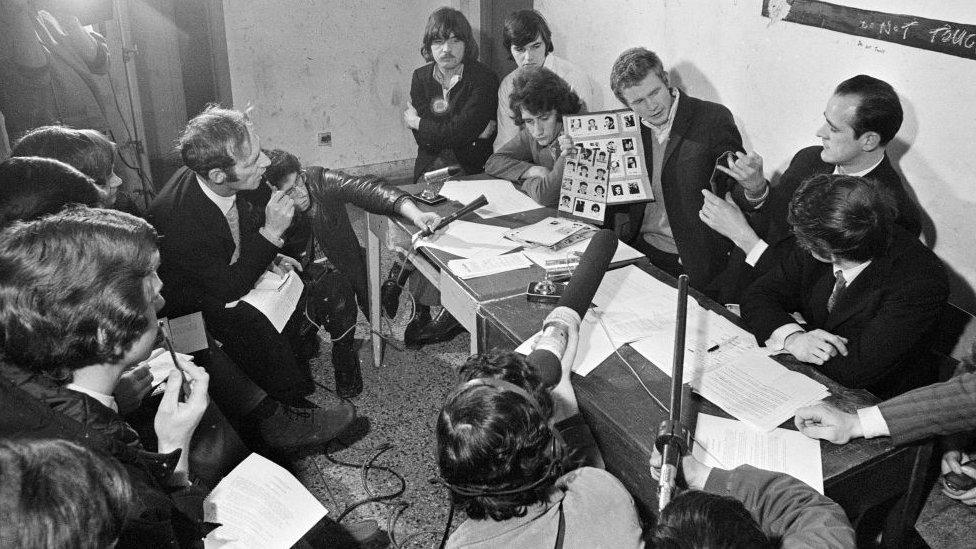
Northern Ireland's future deputy first minister Martin McGuinness (holding photographs) takes part in a Provisional IRA press conference in Derry in April 1972
In August 1969, the Official IRA, the group from which PIRA would emerge, was seen as having failed to defend Catholic homes in Belfast from sectarian attack.
"The 'IRA: I Ran Away' is written on the walls of the Falls Road," said Eamon Phoenix, a political historian.
"A phoenix would emerge from Bombay Street by the end of the year - the Provisional IRA."

You may also be interested in:

A fierce, new assault against British rule began, inflamed by the arrest of hundreds of Catholics in a state policy of internment without trial and then, in 1972, by Bloody Sunday.
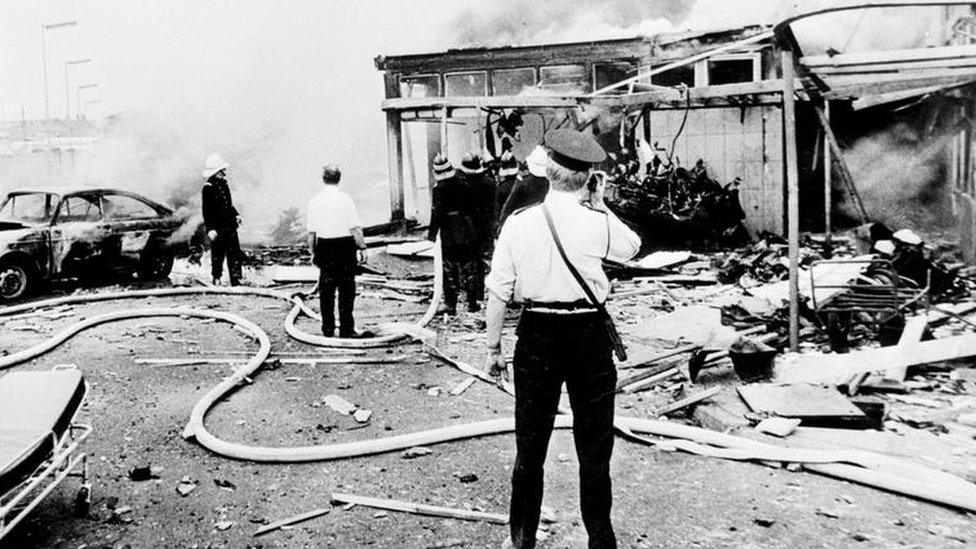
On 21 July 1972, the IRA detonated at least 20 bombs across Belfast killing nine people. The day became known as Bloody Friday.
Internment was the policy of imprisoning people without trial launched on 9 August 1971 - 342 people were detained that day, many of them with no connection to paramilitary groups.
Bloody Sunday saw 13 killed and 15 people wounded after members of the Army's Parachute Regiment opened fire on civil rights demonstrators in the Bogside - a predominantly Catholic part of Londonderry - on Sunday 30 January 1972.
"Once Bloody Sunday happened you are into full-blown guerrilla warfare," said Laurence McKeown, a former PIRA member who served 16 years in jail for attempting to murder police officers.
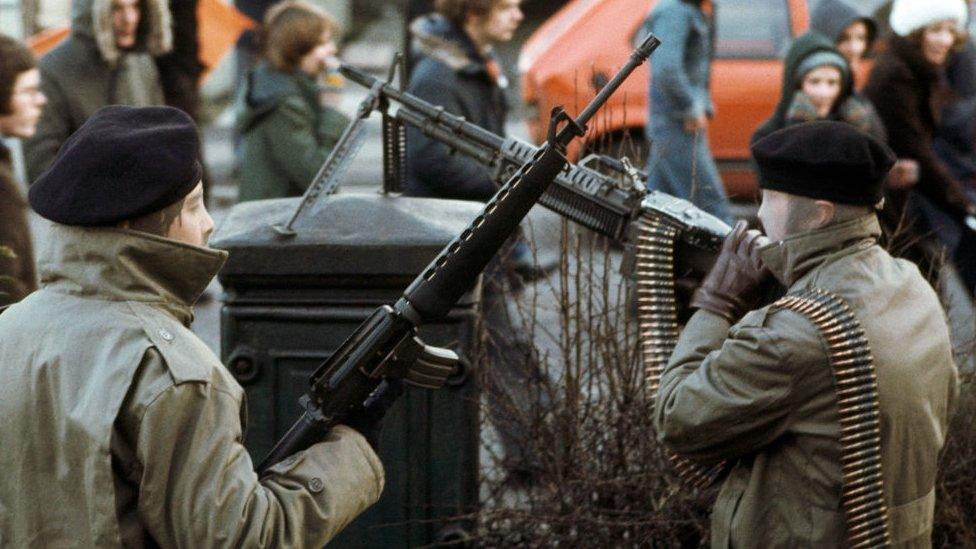
Armed PIRA members openly display weapons at a Bloody Sunday demonstration in Derry in 1978
The former hunger striker is now a playwright who supports the peace process.
"Yes, there were things done which republicans couldn't stand over but that doesn't take away, for me anyway, the legitimacy of the armed struggle," he said.
Soldiers and police officers were targeted relentlessly.
Protestant and Catholic civilians also died at PIRA's hands and in the republican plot at Milltown Cemetery in west Belfast lie scores of graves of its own members killed during the conflict.
Sean Murray added: "There were situations which happened which were of a sectarian nature - as a republican I must acknowledge that.
"That wasn't republican policy, or republican philosophy, but there were actions which could be viewed as sectarian."
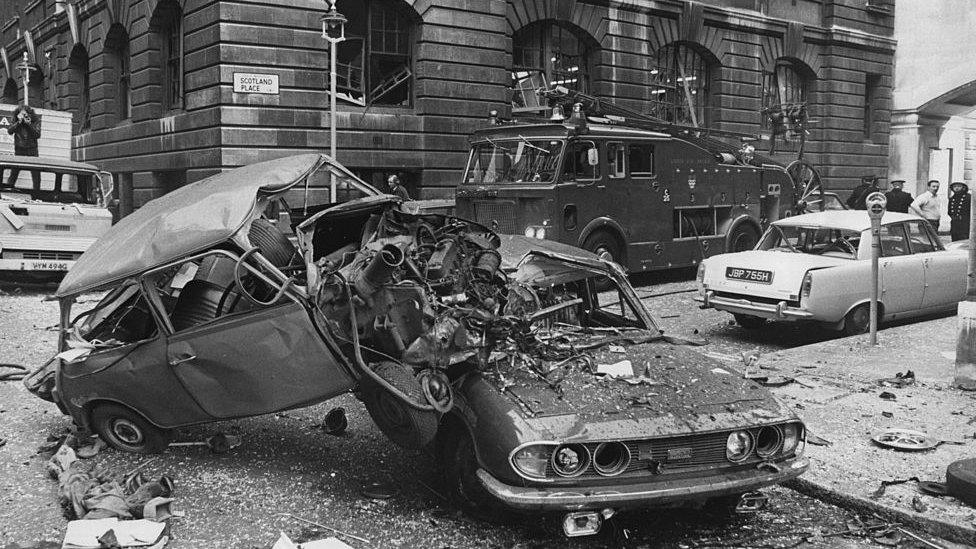
Aftermath of a Provisional IRA bombing in London in 1973
Trying to heal the wounds of the Troubles is now a tough political challenge.
"The conflict just didn't come out of the sky," added Mr Murray, now a strategist within Sinn Féin.
"When I was growing up as a teenager, unbeknown to me, there was a political time bomb ticking away in terms of the Orange state, the discrimination against nationalists, which just exploded.
"So who is to judge who in terms of who is responsible and who did what?
"What created the conditions for conflict and what's being done now to ensure that we learn the lessons from the conflict?"
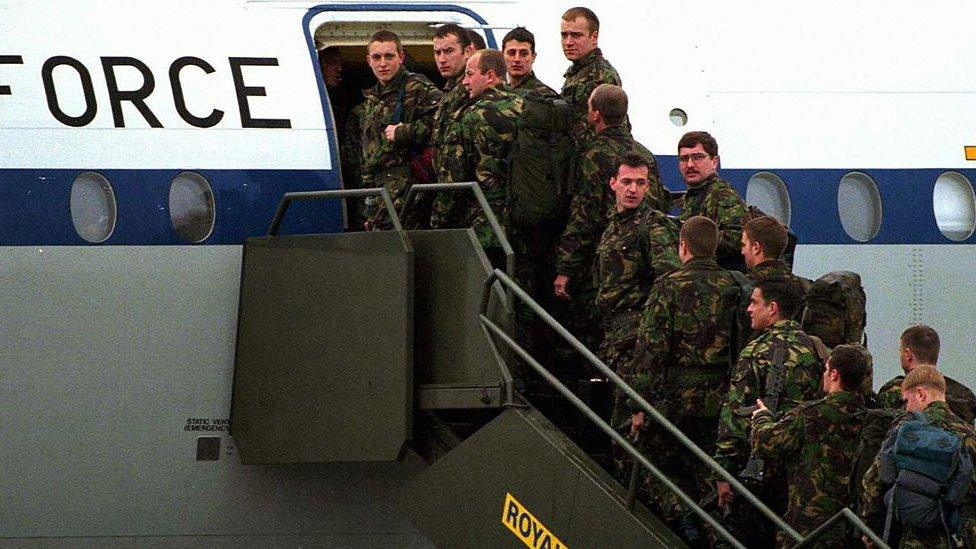
The second PIRA ceasefire in 1997 coincided with the beginning of the withdrawal of the majority of troops from Northern Ireland
Legacy measures, which include a proposed Independent Commission for Information Retrieval, were proposed under the Stormont House Agreement five years ago.
The commission was intended to provide an avenue for families to learn more about the fate of their loved ones.
The legacy proposals have not yet been acted upon by the government.
For now, Northern Ireland's past has been left festering in the present.
Watch more: Explore BBC archive film footage showing what led to the deployment of British troops in August 1969, external.
- Published12 August 2019
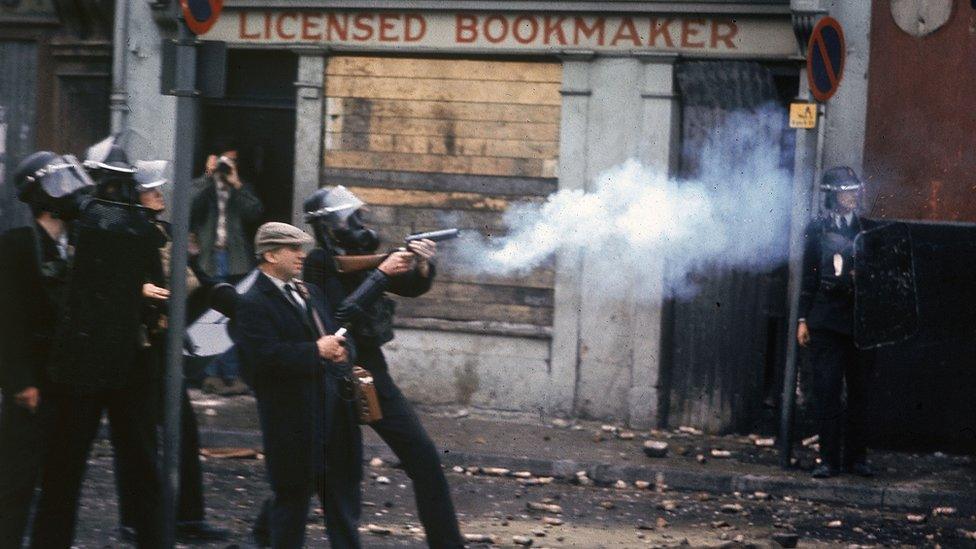
- Published12 August 2019
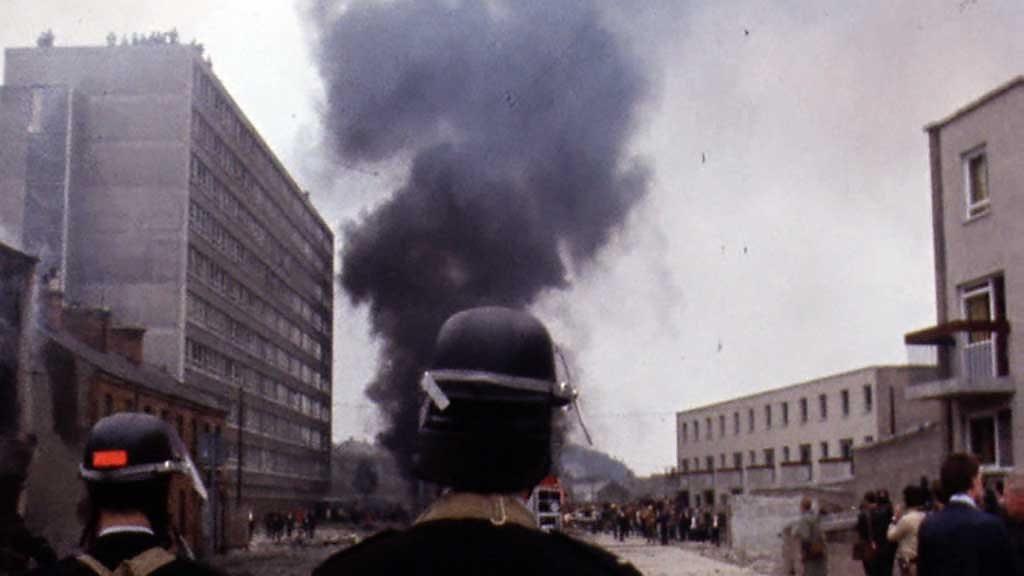
- Published5 August 2019
